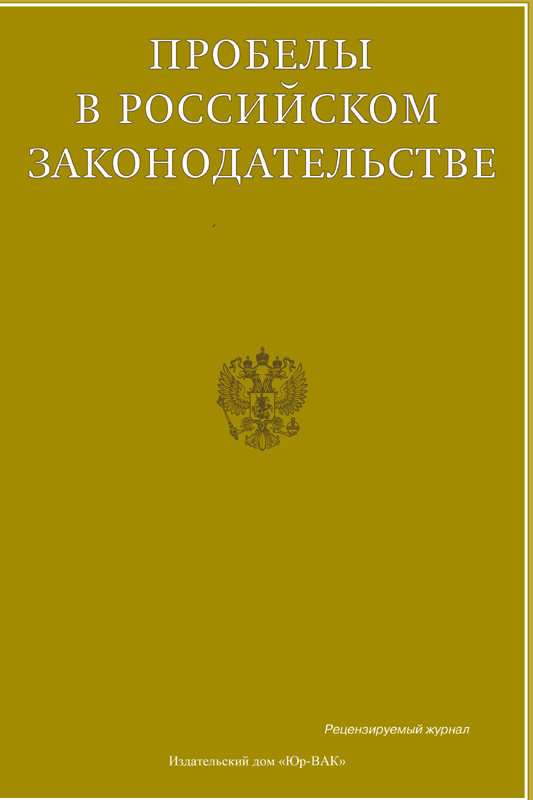German Political and Legal Thought of the XIX - the First Half of the XX Centuries: General and Specific
- 作者: Zubov V.V.1
-
隶属关系:
- Financial University
- 期: 卷 15, 编号 1 (2022)
- 页面: 23-31
- 栏目: Articles
- URL: https://journals.eco-vector.com/2072-3164/article/view/531486
- ID: 531486
如何引用文章
详细
In the proposed article, the author considers the conceptual representation of the German political and legal thought of the 19th - the first half of the 20th centuries as a complex of ideas characterized by integrity and at the same time disjointedness. Through the integrity of general scientific methods of analysis and synthesis, the following tasks are solved: 1) Identification of the basic principles of the existence of politics and law from philosophical point of view; 2) Disclosure of the content and categorical apparatus from historical point of view; 3) Characteristics of the Marxist movement, the establishment of its advantages and disadvantages; 4) Consideration of the "jurisprudence of interest"; 5) Appeal to the methodological base of the "jurisprudence of concepts"; 6) Understanding political and legal institutions on the basis of sociology; 7) Establishment of common and different features between the analyzed areas of German political and legal thought of the specified period. Based on the results of the analysis of the main political and legal directions of German thought of the specified period, the author found out that they are similar by the absence of liberal intentions. Not a single movement, not a single paradigm and school resorted to the issue of human rights, democratic freedoms and the limitation of state arbitrariness by legal prescriptions. The following are distinguished as differences: 1) Philosophers made attempts to establish the ethical and substantive principles of politics and law, which was not the case with representatives of other directions; 2) Different views on the nature of the state: from apologetic and legitimist to pragmatic and critical; 3) For some authors, the state and law were considered part of a larger community, for others - an independent object; 4) Some authors singled out a monofactorial determinant of political and legal development, others used a multifactorial analysis; 5) The followers of some movements tried to predict the future on the basis of a biased analysis of the past and present, others made an attempt at a realistic appeal to political and legal matter. In conclusion, the article focuses on those achievements of the German political and legal thought of the 19th - the first half of the 20th centuries, which began to have a timeless character.
全文:
作者简介
Vadim Zubov
Financial University
Email: zubov305@yandex.ru
Cand.Sci.(History), Associate professor at political science Department Moscow, Russia
参考
- Weber M. Politics as a vocation and profession. M.: RIPOL classic, 2021. 292 p.
- Hegel G. V. F. Philosophy of Law. Moscow: Mysl, 1990. 524 p.
- History of political and legal doctrines: Textbook / Responsible editor V. V. Lazarev. M.: Norm: INFRA-M, 2016. 800 p.
- History of political and legal doctrines: Textbook / Under the general editorship of O. V. Martyshin. M.: Prospect, 2016. 800 p
- Kant I. Works in six volumes. Volume 4. Part 2. Moscow: Mysl, 1965. 478 p.
- Kelsen G. Pure doctrine of law. St. Petersburg: Alef-Press Publishing House, LLC, 2015. 542 p.
- Marx K., Engels F. The complete works. In 50 volumes. Volume 4. Second edition. Moscow: State Publishing House of Political Literature, 1955. 638 p.
- Marx K., Engels F. The complete works. In 50 volumes. Volume 19. Second edition. Moscow: State Publishing House of Political Literature, 1961. 703 p.
补充文件








